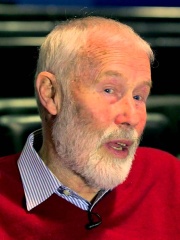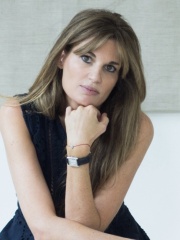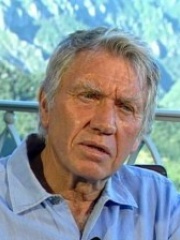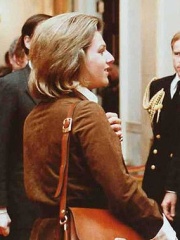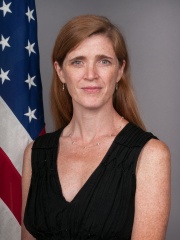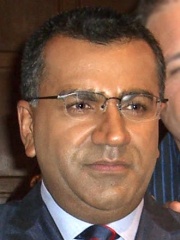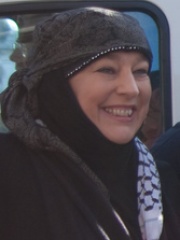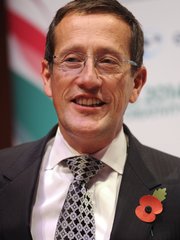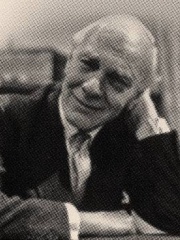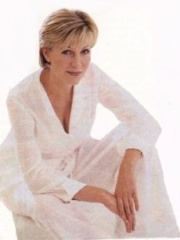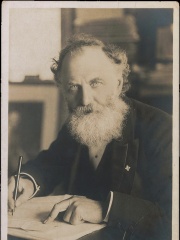
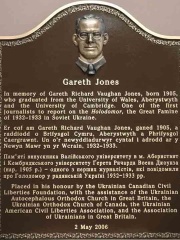
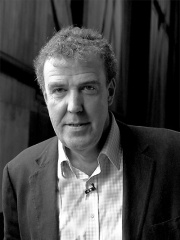
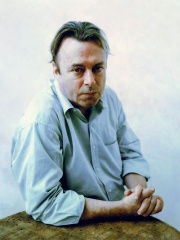
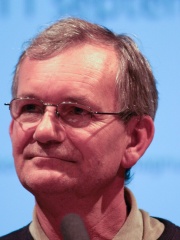
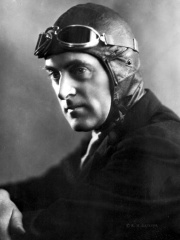
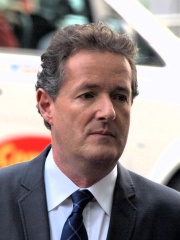

The Most Famous
JOURNALISTS from United Kingdom
This page contains a list of the greatest British Journalists. The pantheon dataset contains 196 Journalists, 25 of which were born in United Kingdom. This makes United Kingdom the birth place of the 2nd most number of Journalists.
Top 10
The following people are considered by Pantheon to be the top 10 most legendary British Journalists of all time. This list of famous British Journalists is sorted by HPI (Historical Popularity Index), a metric that aggregates information on a biography's online popularity. Visit the rankings page to view the entire list of British Journalists.

1. W. T. Stead (1849 - 1912)
With an HPI of 70.09, W. T. Stead is the most famous British Journalist. His biography has been translated into 38 different languages on wikipedia.
William Thomas Stead (5 July 1849 – 15 April 1912) was an English newspaper editor who, as a pioneer of investigative journalism, became a controversial figure of the Victorian era. Stead published a series of hugely influential campaigns whilst editor of The Pall Mall Gazette, including his 1885 series of articles, The Maiden Tribute of Modern Babylon. These were written in support of a bill, later dubbed the "Stead Act", that raised the age of consent from 13 to 16. Stead's "new journalism" paved the way for the modern tabloid in Great Britain. He has been described as "the most famous journalist in the British Empire". He is considered to have influenced how the press could be used to influence public opinion and government policy, and advocated "Government by Journalism". He was known for his reportage on child welfare, social legislation and reformation of England's criminal codes. Stead died in the sinking of the RMS Titanic.

2. Gareth Jones (1905 - 1935)
With an HPI of 65.58, Gareth Jones is the 2nd most famous British Journalist. His biography has been translated into 24 different languages.
Gareth Richard Vaughan Jones (13 August 1905 – 12 August 1935) was a Welsh journalist who in March 1933 first reported in the Western world, without equivocation and under his own name, the existence of the Soviet famine of 1930–1933, including the Holodomor and the Asharshylyk. Jones had reported anonymously in The Times in 1931 on starvation in both Soviet Russia and Soviet Ukraine. After his third visit to the Soviet Union, he issued a press release under his own name in Berlin on 29 March 1933 describing the widespread famine in detail. Reports by Malcolm Muggeridge, writing in 1933 as an anonymous correspondent, appeared contemporaneously in the Manchester Guardian; his first anonymous article specifying famine in the Soviet Union was published on 25 March 1933. After being banned from re-entering the Soviet Union, Jones journeyed to the Far East to report on the Japanese invasion of Manchuria. Ignoring warnings from the British Embassy of their presence, he was kidnapped by Chinese bandits and murdered in 1935 while investigating in Japanese-occupied Inner Mongolia; his murder is suspected by some, albeit without any evidence, to be the work of the Soviet secret police, the NKVD. Upon his death, former British prime minister David Lloyd George said, "He had a passion for finding out what was happening in foreign lands wherever there was trouble, and in pursuit of his investigations he shrank from no risk. … Nothing escaped his observation, and he allowed no obstacle to turn from his course when he thought that there was some fact, which he could obtain. He had the almost unfailing knack of getting at things that mattered."

3. Jeremy Clarkson (b. 1960)
With an HPI of 64.35, Jeremy Clarkson is the 3rd most famous British Journalist. His biography has been translated into 48 different languages.
Jeremy Charles Robert Clarkson (born 11 April 1960) is an English television presenter, journalist, farmer, and author who specialises in motoring. He is best known for hosting the motoring television programmes Top Gear (2002–2015) and The Grand Tour (2016–2024) alongside Richard Hammond and James May. He also currently writes weekly columns for The Sunday Times and The Sun. Clarkson hosts the ITV game show Who Wants to Be a Millionaire? (2018–present), and stars in the farming documentary show Clarkson's Farm (2021–present). From a career as a local journalist in northern England, Clarkson rose to public prominence as a presenter of the original format of Top Gear in 1988. Since the mid-1990s, he has become a recognised public personality, regularly appearing on British television presenting his own shows for the BBC and appearing as a guest on other shows. As well as motoring, Clarkson has produced programmes on subjects such as history and engineering; he has also written numerous books, primarily on cars. In 1998, he hosted the first series of Robot Wars. From 1998 to 2000, he also hosted his own talk show, entitled Clarkson. In 2002 Clarkson, alongside producer Andy Wilman, devised the relaunched Top Gear, which he hosted alongside Richard Hammond and later James May. The revised show became the most widely-broadcast factual television show in the world. In 2015, the BBC elected not to renew Clarkson's contract after he assaulted a Top Gear producer while filming on location. That year, Clarkson and his Top Gear co-presenters and Wilman formed the production company W. Chump & Sons to produce The Grand Tour for Amazon Prime Video. Clarkson's opinionated but humorous tongue-in-cheek writing and presenting style has often provoked a public reaction. His actions, both privately and as a Top Gear presenter, have also sometimes resulted in criticism from the media, politicians, pressure groups, and the public. He also has a significant public following, being credited as a major factor in the resurgence of Top Gear as one of the most popular shows on the BBC. In 2006, the British public ranked him number 19 in ITV's poll of TV's 50 Greatest Stars. Since 2019, he has become a farmer at Diddly Squat Farm for his show, Clarkson's Farm. The show received a positive reception and became a popular show on Prime Video upon its release. In May 2024, the "Clarkson's clause" amendment, named after Clarkson, was introduced; this clause makes it easier to convert unused agricultural buildings to commercial usage, something he did in Season 2 of the show when planning permission for his restaurant was denied.

4. Christopher Hitchens (1949 - 2011)
With an HPI of 63.12, Christopher Hitchens is the 4th most famous British Journalist. His biography has been translated into 67 different languages.
Christopher Eric Hitchens (13 April 1949 – 15 December 2011) was a British and American author and journalist. Known as one of the "Four Horsemen" of New Atheism (along with Richard Dawkins, Sam Harris, and Daniel Dennett), he gained prominence as a columnist and speaker. His epistemological razor, which states that "what can be asserted without evidence can also be dismissed without evidence", is still of mark in philosophy and law. Hitchens was born and educated in Britain, graduating in 1970 from the University of Oxford with a degree in philosophy, politics, and economics. In the early 1980s, he emigrated to the United States and wrote for The Nation and Vanity Fair. Hitchens's political views evolved greatly throughout his life. Originally describing himself as a democratic socialist, he was a member of various socialist organisations in his early life, including the Trotskyist International Socialists. Hitchens was critical of aspects of American foreign policy, including its involvement in Vietnam, Chile, and East Timor. However, he supported the United States in the Kosovo War, Bosnian War, and other interventions. Hitchens emphasised the centrality of the American Revolution and Constitution to his political philosophy. He held complex views on abortion: being ethically opposed to it in most instances, and believing that a foetus was entitled to personhood; while holding ambiguous, changing views on its legality. He supported gun rights and supported same-sex marriage, while opposing the war on drugs. Beginning in the 1990s, and particularly after 9/11, his politics were widely viewed as drifting to the right, but Hitchens objected to being called 'conservative'. During the 2000s, he argued for the invasions of Iraq and Afghanistan, endorsed the re-election campaign of US President George W. Bush in 2004, and viewed Islamism as the principal threat to the Western world. Hitchens described himself as an antitheist and saw all religions as false, harmful, and authoritarian. He endorsed free expression, scientific scepticism, and separation of church and state, arguing science and philosophy are superior to religion as an ethical code of conduct for human civilisation. Hitchens authored 18 books on faith, religion, culture, politics, and literature. He notably wrote critical biographies of Catholic nun Mother Teresa in The Missionary Position, Bill Clinton in No One Left to Lie To, and American diplomat Henry Kissinger in The Trial of Henry Kissinger. Hitchens died from complications related to oesophageal cancer in December 2011, at the age of 62.

5. William Wilson (1844 - 1912)
With an HPI of 59.78, William Wilson is the 5th most famous British Journalist. His biography has been translated into 23 different languages.
William Wilson (13 November 1844 – 1 June 1912) was a late 19th-century British journalist, swimming instructor and coach, contributor to the scientific techniques behind competitive swimming, and originator of the game of water polo. In 1883, Wilson published "The Swimming Instructor," one of the first books on swimming to define modern concepts of stroke efficiency, training, racing turns and water safety.

6. Martin Parr (1952 - 2025)
With an HPI of 58.15, Martin Parr is the 6th most famous British Journalist. His biography has been translated into 21 different languages.
Martin Parr (23 May 1952 – 6 December 2025) was an English documentary photographer and photojournalist. He was known for his photographic projects that take an intimate, satirical and anthropological look at aspects of modern life, in particular documenting the social classes of England, and more broadly the wealth of the Western world. His major projects were rural communities (1975–1982), The Last Resort (1983–1985), The Cost of Living (1987–1989), Small World (1987–1994) and Common Sense (1995–1999). Since 1994, Parr had been a member of Magnum Photos. He had around 60 solo photobooks published, and had featured in around 90 exhibitions worldwide – including the international touring exhibition ParrWorld, and a retrospective at the Barbican Arts Centre, London, in 2002. The Martin Parr Foundation, founded in 2015, and registered as a charity in 2015 opened premises in his hometown of Bristol in 2017. It houses his personal archive, his collection of British and Irish photography by other photographers, and a gallery.

7. Malcolm Campbell (1885 - 1948)
With an HPI of 55.54, Malcolm Campbell is the 7th most famous British Journalist. His biography has been translated into 20 different languages.
Major Sir Malcolm Campbell (11 March 1885 – 31 December 1948) was a British racing motorist and motoring journalist. He gained the world speed record on land and on water at various times, using vehicles called Blue Bird, including a 1921 Grand Prix Sunbeam. His son, Donald Campbell, carried on the family tradition by holding both land speed and water speed records.

8. Piers Morgan (b. 1965)
With an HPI of 55.29, Piers Morgan is the 8th most famous British Journalist. His biography has been translated into 33 different languages.
Piers Stefan Pughe-Morgan (né O'Meara; born 30 March 1965) is an English broadcaster, journalist, writer, and media personality. He began his career in 1988 at the tabloid The Sun. In 1994, at the age of 29, he was appointed editor of the News of the World by Rupert Murdoch, which made him the youngest editor of a British national newspaper in more than half a century. From 1995, Morgan edited the Daily Mirror, but was fired in 2004. He was the editorial director of First News from 2006 to 2007. In 2014, Morgan became the first editor-at-large of the MailOnline website's American operation. As a television presenter, Morgan hosted the ITV talk show Piers Morgan's Life Stories (2009–2020), the CNN talk show Piers Morgan Live (2011–2014), and co-presented the ITV Breakfast programme Good Morning Britain (2015–2021) alongside Susanna Reid. He has been a judge on the television talent shows America's Got Talent (2006–2011) and Britain's Got Talent (2007–2010). In 2008, Morgan won The Celebrity Apprentice, appearing with future US president Donald Trump. He was a presenter for TalkTV (now known as Talk), hosting the program Piers Morgan Uncensored from 2022 to 2024, before leaving the network and moving the show to YouTube. Since September 2025, a weekly highlights show from YouTube episodes of the show has aired on Channel 5. Morgan was the editor of the Daily Mirror during the period in which the paper was implicated in the phone hacking scandal. In 2011, Morgan denied having ever hacked a phone and stated that he had not, "to [his] knowledge published any story obtained from the hacking of a phone". The following year, he was criticised in the findings of the Leveson Inquiry by chair Brian Leveson, who stated that comments made in Morgan's testimony about phone hacking were "utterly unpersuasive" and "that he was aware that it was taking place in the press as a whole and that he was sufficiently unembarrassed by what was criminal behaviour that he was prepared to joke about it". The judge in a 2023 court case against Mirror Group Newspapers found truthful evidence that Morgan knew about private phone hacking from a reporter, shared a method of phone hacking with a media professional while being questioned about a reporting scoop, and that Morgan played another's private phone message in the newsroom he had received from another tabloid editor. Morgan's outspoken views and controversial comments on Good Morning Britain have led Ofcom to adjudicate on multiple occasions. In March 2021, Morgan left the programme with immediate effect, following his criticism of the Oprah with Meghan and Harry interview. Ofcom received over 57,000 complaints from viewers, including a complaint from Meghan, Duchess of Sussex, herself; Morgan was subsequently cleared of wrongdoing by Ofcom.

9. George Rodger (1908 - 1995)
With an HPI of 54.91, George Rodger is the 9th most famous British Journalist. His biography has been translated into 17 different languages.
George William Adam Rodger (19 March 1908 – 24 July 1995) was a British photojournalist. He was noted for his work in Africa, and for photographing mass deaths at Bergen-Belsen concentration camp during the end of the World War II.
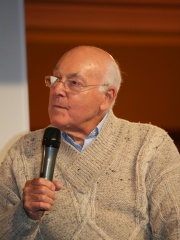
10. Murray Walker (1923 - 2021)
With an HPI of 54.56, Murray Walker is the 10th most famous British Journalist. His biography has been translated into 23 different languages.
Graeme Murray Walker (10 October 1923 – 13 March 2021) was an English motorsport commentator and journalist. He provided television commentary of live Formula One coverage for the BBC between 1976 and 1996, and for ITV between 1997 and 2001. During his 23-year run as full-time commentator, Walker became known for his animated enthusiasm, authoritative voice and comical blunders – dubbed "Murrayisms" by fans – during live races. His commentary voice has been likened to a "screech and resembles a 500cc engine being revved up". He retired from full-time commentary after the 2001 United States Grand Prix, but returned to broadcasting part-time in 2005 and made occasional appearances on the BBC, Channel 4, Network 10 and Sky Sports F1.
People
Pantheon has 25 people classified as British journalists born between 1844 and 1983. Of these 25, 15 (60.00%) of them are still alive today. The most famous living British journalists include Jeremy Clarkson, Piers Morgan, and Chris Bonington. The most famous deceased British journalists include W. T. Stead, Gareth Jones, and Christopher Hitchens. As of April 2024, 2 new British journalists have been added to Pantheon including Richard Quest, and Huw Edwards.
Living British Journalists
Go to all RankingsJeremy Clarkson
1960 - Present
HPI: 64.35
Piers Morgan
1965 - Present
HPI: 55.29
Chris Bonington
1934 - Present
HPI: 52.77
Jemima Goldsmith
1974 - Present
HPI: 52.65
Don McCullin
1935 - Present
HPI: 52.44
Carol Thatcher
1953 - Present
HPI: 51.95
Samantha Power
1970 - Present
HPI: 49.06
Martin Bashir
1963 - Present
HPI: 45.97
Yvonne Ridley
1958 - Present
HPI: 45.50
Richard Quest
1962 - Present
HPI: 40.79
Eliot Higgins
1979 - Present
HPI: 39.96
Huw Edwards
1961 - Present
HPI: 39.78
Deceased British Journalists
Go to all RankingsW. T. Stead
1849 - 1912
HPI: 70.09
Gareth Jones
1905 - 1935
HPI: 65.58
Christopher Hitchens
1949 - 2011
HPI: 63.12
William Wilson
1844 - 1912
HPI: 59.78
Martin Parr
1952 - 2025
HPI: 58.15
Malcolm Campbell
1885 - 1948
HPI: 55.54
George Rodger
1908 - 1995
HPI: 54.91
Murray Walker
1923 - 2021
HPI: 54.56
Malcolm Muggeridge
1903 - 1990
HPI: 52.91
Jill Dando
1961 - 1999
HPI: 45.17
Newly Added British Journalists (2025)
Go to all RankingsOverlapping Lives
Which Journalists were alive at the same time? This visualization shows the lifespans of the 9 most globally memorable Journalists since 1700.

